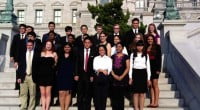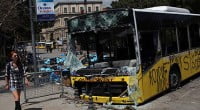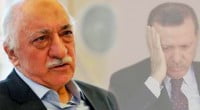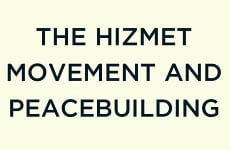How did the West become Muslims’ paradise?

Date posted: December 14, 2015
A generation of Muslims was taught two major mottos.
The first motto is well known: The West is immoral and the source of all global menaces. The second motto is more eschatological: The West is collapsing or its collapse will be very soon. I myself remember many famous books and sermons that prophesied the collapse of the West in the late ’80s.
The West did not collapse. Instead, Western scientific and technological advancement continued. Instead, Muslim generations around the globe have transformed into an “IPhone generation.” It is true that the West has many material and non-material problems. However, from a comparative perspective, there is no specific field in which the Muslim world does better than the West.
However, something that happened recently should be shocking to the average Muslim thinking about the West. Thousands of Muslims are rushing to various Western countries in order to have better life conditions. Muslims from Syria, Iraq and many other countries are trying to migrate to a Western country. Why are Muslims leaving their historical Muslim lands? The answer is very clear: They can no longer protect their life, honor and families. They can no longer feed their children. There is a second question: Why do they try to migrate to a Western country and not a Muslim one such as Saudi Arabia? The answer is again clear: There are not many Muslim states that can offer the equivalent humane conditions to Muslim migrants that Western states do.
How come the “immoral West” became a target for immigration for Muslims? Isn’t it a reproach to those who for years argued that the West was collapsing and was immoral? For decades, popular history told Muslims that Muslim lands had always been an address for all oppressed people from around the globe. Today, things are different. Muslim girls and boys are seeking protection from the Christian West lest they perish in their homeland. Let me be clear: Muslims are seeking help from the Christian West in order to protect themselves from other Muslims. It is a fact that while Western countries may not have Christianity as a state-endorsed religion, culturally Christianity still lurks in different aspects of Western politics and society. More critically, the West is still Christian for many Muslims.
I recently read a story written by Canadian journalist Allison Jones about recent groups of Syrian refugees that had reached Canada. What a Syrian said, I believe, is one of the most eloquent statements about the traumatic situation of the Middle Eastern individual regarding his/her civilization and the West. According to Jones, the Syrian man was reported say, “We suffered a lot. Now, we feel as if we got out of hell and we came to paradise.”
This Syrian’s statement needs no deconstruction. Hell here refers to Syria, the man’s homeland. It must not be easy for one to call his historic homeland hell. Paradise here refers to Canada. Yet, what the man said is potentially true for many other Syrians. There are millions of people living in various Middle Eastern countries who would prefer to live in a Christian Western country rather then their historic homeland.
In the 12th century, the famous Arabic poet Ibn Jubayr wrote:
“If Paradise be on earth, Damascus must be it;
if it is in heaven, Damascus can parallel and match it.”
Then here is the question: How come the Muslim paradise, Damascus, turned into their hell? Damascus, a city once compared to Paradise by Ibn Jubayr, is today compared to hell by a Syrian man who left his country lest he be killed part of an ongoing civil war.
More critical is the Muslim reaction to events. Are they developing a more self-critical approach to themselves, their society and their politics after recent chaos in many Muslim countries? Or are they continuing the traditional anti-Western jargon that prevents Muslims from seeing their own deficiencies?
Source: Today's Zaman , December 13, 2015
Tags: Islamic World |
























